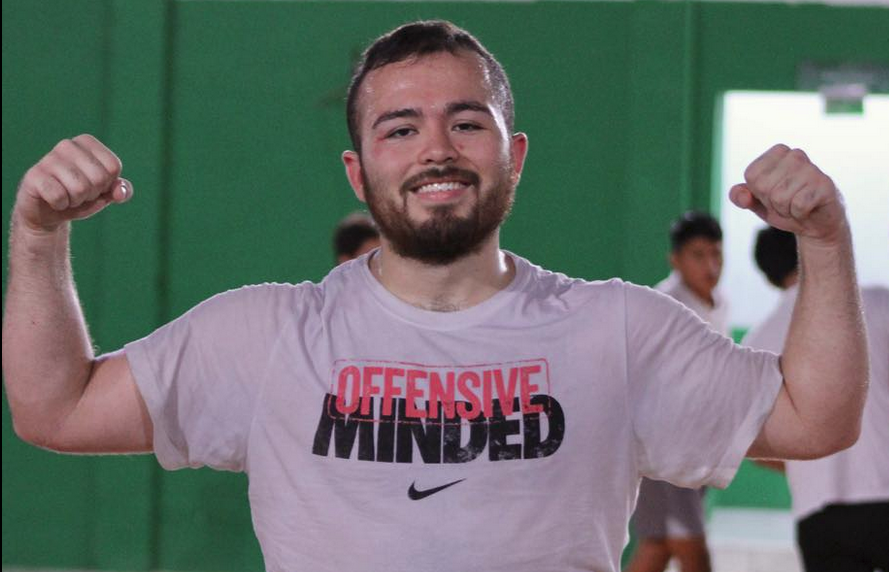Andrew Vera-Jackson (‘21) intends to be in Paris in 2024. More specifically, he plans to be at the Champ de Mars Arena. As a wrestler on the Bolivian World Team, he has his sights set on becoming an Olympic champion and a role model far beyond the squared circle.
The Tucson native began wrestling in middle school and continued through his years at Cienega High School in Pima County. He earned two state medals and was named an All-American wrestler and a member of Team Arizona.
As impressive in the classroom as he is on the mat, he had his pick of three dozen schools, including Stanford and Columbia. He considered majoring in sports medicine or business. When a high school friend told him about the Global Security Intelligence Studies (GSIS) program at Embry-Riddle, the possibilities appealed to him. “It gives you the potential to explore so many different intelligence and security-related jobs,” he says.
He also liked the Prescott campus, with its small classes, access to resources and personal engagement with professors. “You weren’t walking into a classroom with 500 kids where the professor only gets to know the top 3%.”
He decided to pursue a GSIS degree with a minor in Middle Eastern Studies. He also continued wrestling as an Eagle.
An illness in his family forced him to take a break from his studies. After three years as a corrections officer in maximum-security detention facilities, he returned to Embry-Riddle. The challenge of returning to top form coupled with the discipline of a demanding program was grueling. “Some of my professors did as much as anyone could ask for,” he says, citing his former professor the late Richard Bloom, assistant professor Steven Hooper, and GSIS associate professor and chair Thomas Foley as particularly supportive in helping him complete his degree.
After graduation, he joined the Spartan Mat Club at Texas Wesleyan University in Fort Worth where he is pursuing an MBA with a focus on supply chain management. His priority now is pushing himself as an athlete, and his efforts have earned him a spot on the Bolivian World Team, moving him closer to his Olympic dreams. He lived in Bolivia as a child and still has family ties in the country. “I want to create a positive example for young people in Bolivia.”
Vera-Jackson is now training, competing and developing young talent as a USA Wrestling Bronze-certified coach and is assistant wrestling coach at Texas Wesleyan.
In preparing for world competition, he has competed in Mexico and Bolivia. Next on the agenda are the World Wrestling Championships in Serbia, Pan American Championships in Argentina, Grand Prix of Spain, Poland Warsaw Open and Pan Am Games in Chile.
Bolivia has limited support available to their athletes and there are restrictions on what athletes can pay for themselves. In addition to seeking sponsors and partnerships, Vera-Jackson covers training and travel costs with the help of donors to his GoFundMe page.
After the Olympics, Vera-Jackson intends to complete his master’s and continue coaching. His broader goal is to create a nonprofit to help students gain opportunities. As a first-generation college graduate in his family, he wants to help other student-athletes and others find the best educational fit and career path, whether that means a traditional university or a trade school or apprenticeship program. “I know I want to give back to the community that has helped me, starting in Arizona and eventually expanding,” he says. “I want to help people get to the front door and succeed on the other side of that door.”
Is a return to international competition in his plans? Whether he goes to Los Angeles in 2028 may depend on how well he does in the Summer Olympics and the status of his knees, back and neck. He is optimistic. “Nothing has stopped me yet, so we’ll see how far I can go.”
